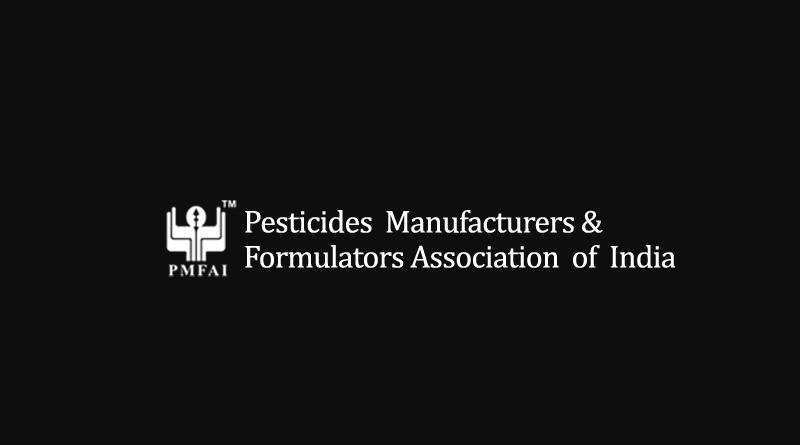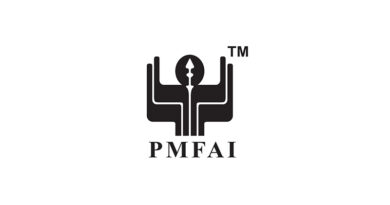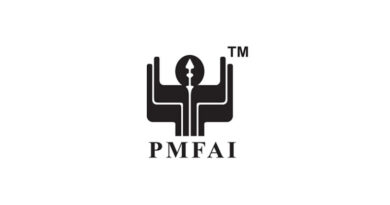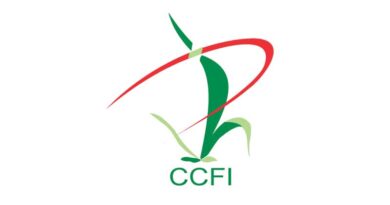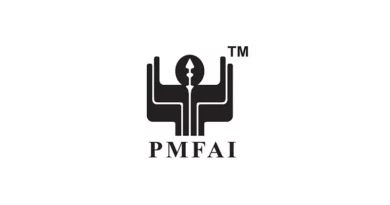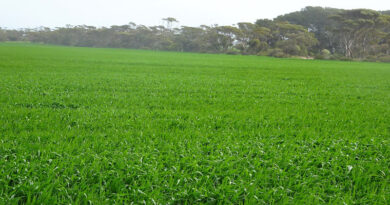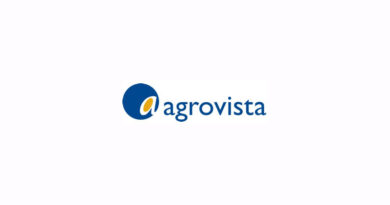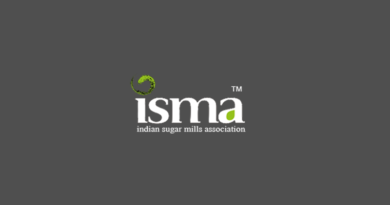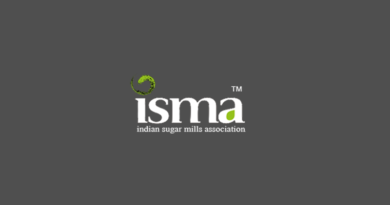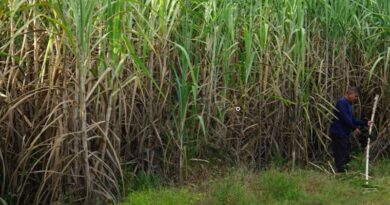Indian Agrochemical Industry demands policy support and corrective measures from the Government in 2021: PMFAI
Guest Author: Mr. Pradip Dave, President, PMFAI
06 January 2021, Mumbai, IN: The year 2020 saw unprecedented challenges due to COVID-19 pandemic. The Indian Agrochemical / Pesticide industry was struggling to achieve desired targets as production, supply chains / logistics got badly affected.
The major realisation was on the need for Agrochemical Industry to be self-reliant for key Intermediates and Raw-materials required for local production of Agrochemicals/Pesticides, and avoiding dependency on imports. The industry is dependent on imports to an extend of 40% of key Intermediates and Raw-materials from China and Europe.
The surging imports in Agrochemicals / Pesticides sector is of great concern when 40% of production capacities in Agrochemical sector remain un-utilized in the country. Imports of pesticides for the year 2020-21 is about Rs. 11,000 crores compared to Rs. 9,095 crores in 2019-20 with readymade formulation imports accounting for about Rs.3500 crores.
The situation demands policy support and corrective measures from the Government in 2021 in four main areas to drive the growth of Domestic Agrochemical industry.
Policy allowing registrations for Imports of Readymade Pesticides Formulations without registering Technical Grade Pesticides (active ingredients) in India be abolished
Post introduction of Insecticides Act, 1968 and Insecticides Rules 1971, Technical Grade Pesticides were registered in the country by Central Insecticide Board and Registration Committee (CIB & RC) in parallel to Formulation registration and it was also as per policy mandated by FAO/WHO and was followed by countries all over the world including major agricultural nations like USA, Europe, Brazil, China, Australia, Argentina etc.
The policy change introduced in 2006 which allowed registrations for imports of Readymade Pesticides Formulations without registering the Technical Grade Pesticides in the country has impacted the growth of Indian agrochemical sector for last 14 years.
Contrary to the vision of self reliant India (Atma Nirbhar Bharat), the policy allowing registrations for “Imports of readymade Pesticides Formulations without registering Technical Grade Products in the country” is ruining the prospects of self-reliance in Agrochemical sector. The policy discourages registration and production of Technical Grade Products in India by large-scale manufacturers, consequently its availability to Formulators who are largely MSMEs.
Regulatory changes post 2006 allowing registrations for import of Finished Pesticides Formulations without registering Technical Grade products was done to encourage entry of new molecules in India for the benefit of Indian Farmers but has only helped facilitating formulation imports and monopolies. During last 14 years it has been proven beyond doubts that over 150 registrations granted under the policy has not served any benefit as old, off patent molecules (20-50 years old) have been brought to India.
More importantly, Imports of Ready made Pesticides Formulations without registration of Technical Grade products is very dangerous to the health & safety of Farmers as well as soil and environment of the country. Technical grade active ingredients are the underlying main components in the Formulations responsible for its pesticidal actions (insecticides, fungicides, herbicides, etc) and the same active ingredients that carry the risk and hazards, their evaluation and registration in the country is key and should be the basis for registration.
It is high time that Government should abolish this policy and make necessary provisions for compulsory registration of Technical Grade Pesticides (Active Ingredients) prior to granting registrations for Formulations.
Increasing Imports of Technical Grade Pesticides from China is threat to the growth of Indian Agrochemical Industry.
When Insecticides Act, 1968 and Rules, 1971 were introduced, registrations were granted to manufacture of formulations. In those years, since there were not many technical grade product manufacturers in the country, registrations for imports of technical grade products were allowed only to those Formulators who wanted to import technical to manufacture formulation products in India.
But now the situation has entirely changed as many importers have made it a trade and have started applying for import registrations to import technical grade products for selling in the country without having any restrictions. These traders misused import registrations granted to them by selling imported technical grade products in the country and some traders have even made arrangements with overseas companies for exclusive distribution rights for technical grade products in India, blocking genuine importers (formulators) from directly importing technical grade products for their own use.
The above has resulted in a surge in imports of technical grade products from cheaper sources like China and other countries, discouraging domestic production.
Major problem is that in spite of India having granted many registrations for indigenous productions and having larger production capacities for many technical grade products, the same are imported to the country from cheaper destinations for minor price gains, which defeats interests of indigenous manufacturers.
Imports of Technical Grade Pesticides, if at all required, need to be made strictly on actual user basis and not for trading, to ensure success of “Make in India”.
Registrations granted under TI (Technical Import) v/s. TIM (Technical Indigenous Manufacturing) category is another area hurting indigenous manufacturing sector where in spite of having enough indigenous production capacities, high imports of Technical are taking place from cheaper sources like China and other countries. Actions must be taken to stop this by appropriate steps and also by increasing Import duties.
Rectification required in Customs Duty structures to encourage “Aatma Nirbhar” in Agrochemical sector
The prevailing Customs Duty structures in the country requires rectification to marginalize imports and encourage indigenous manufacturing of agrochemicals.
- Present Basic Customs Duty on Raw-materials/Intermediates (which goes in manufacturing) under Chapter 29 is 7.5% ;
- Present Basic Customs Duty on imports of Technical Grade material used for manufacturing under Chapter 38 is 10%; and
- Present Basic Customs duty on imports of Readymade Pesticide Formulations (Finished product) under Chapter 38 is also 10%.
The difference of just 2.5% Customs Duty between Raw-material/Intermediates and Finished products does not leave any scope to attract investments and encourage manufacturing in India. There must be reasonable variation in levying Customs Duty on inputs which are required for manufacturing in India versus finished products which are imported, otherwise pesticide manufacturing sector in India will be at a big disadvantage.
It is high time that imports of Finished Pesticide Formulations under Chapter 38 must be put under minimum Customs Duty of 30% and on imports of Technical Grade Products Customs Duty be levied at 20% to encourage local production of technical grade pesticides.
Unfair demand for Data Protection for Agrochemicals / Pesticides
After India becoming signatory to Patent Protection regime which has become operational from the year 2005, the inventor gets 20 years Protection under Patents. The period of 20 years protection provides enough time to inventors to recover investments and fair amounts of profits.
Unlike consumer products, Agrochemical/Pesticides products need to be economically priced in India as the consumers are Farmers and majority of farmers in the country are small land holding farmers of 1-5 acres of land who cannot afford high prices. Though introduction of newer and safer molecules is a plus point for Indian Agriculture, delays in entry of generic pesticide products will adversely affect the country and there is a need to adopt pro-farmer policies. Given below in brief are the reasons why Data Protection is not to be considered:
Provisions for Data Exclusivity/Data Protection if provided, will effectively be extending the monopolies of companies for a further period, who already enjoys 20 years Patent Protection under WTO provisions which has become operational in India from the year 2005. If Data Protection is given further, it is like ever-greening of Patents.
Provisions for Data Exclusivity/Data Protection if provided, will effectively be extending the monopolies of companies for a further period, who already enjoys 20 years Patent Protection under WTO provisions which has become operational in India from the year 2005. If Data Protection is given further, it is like ever-greening of Patents.
Provisions for Data Exclusivity/Data Protection if provided, will effectively be extending the monopolies of companies for a further period, who already enjoys 20 years Patent Protection under WTO provisions which has become operational in India from the year 2005. If Data Protection is given further, it is like ever-greening of Patents.
88th Report of Parliamentary Standing Committee on Patents and Trade Marks systems in India, presented to the Parliament on 24th October 2008 also vehemently opposed to giving any form of data exclusivity to off patented products. In view of the above, provision for Data Protection for Agrochemicals/Pesticides should NOT be included in Pesticides Management Bill (PMB), as the same will obstruct growth of indigenous manufacturers.

